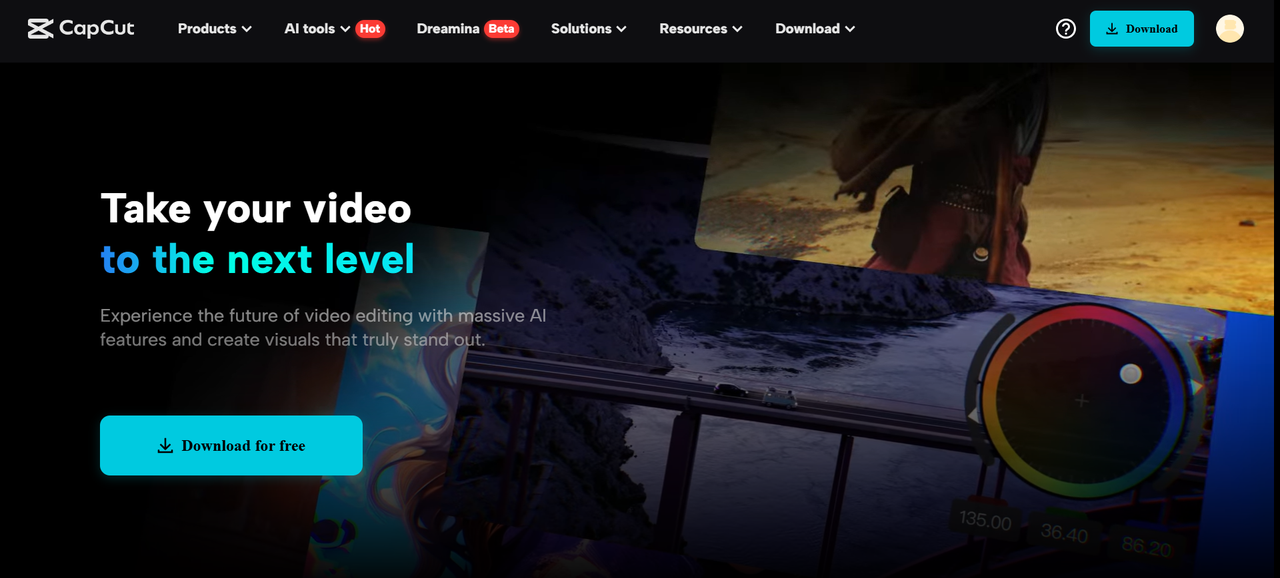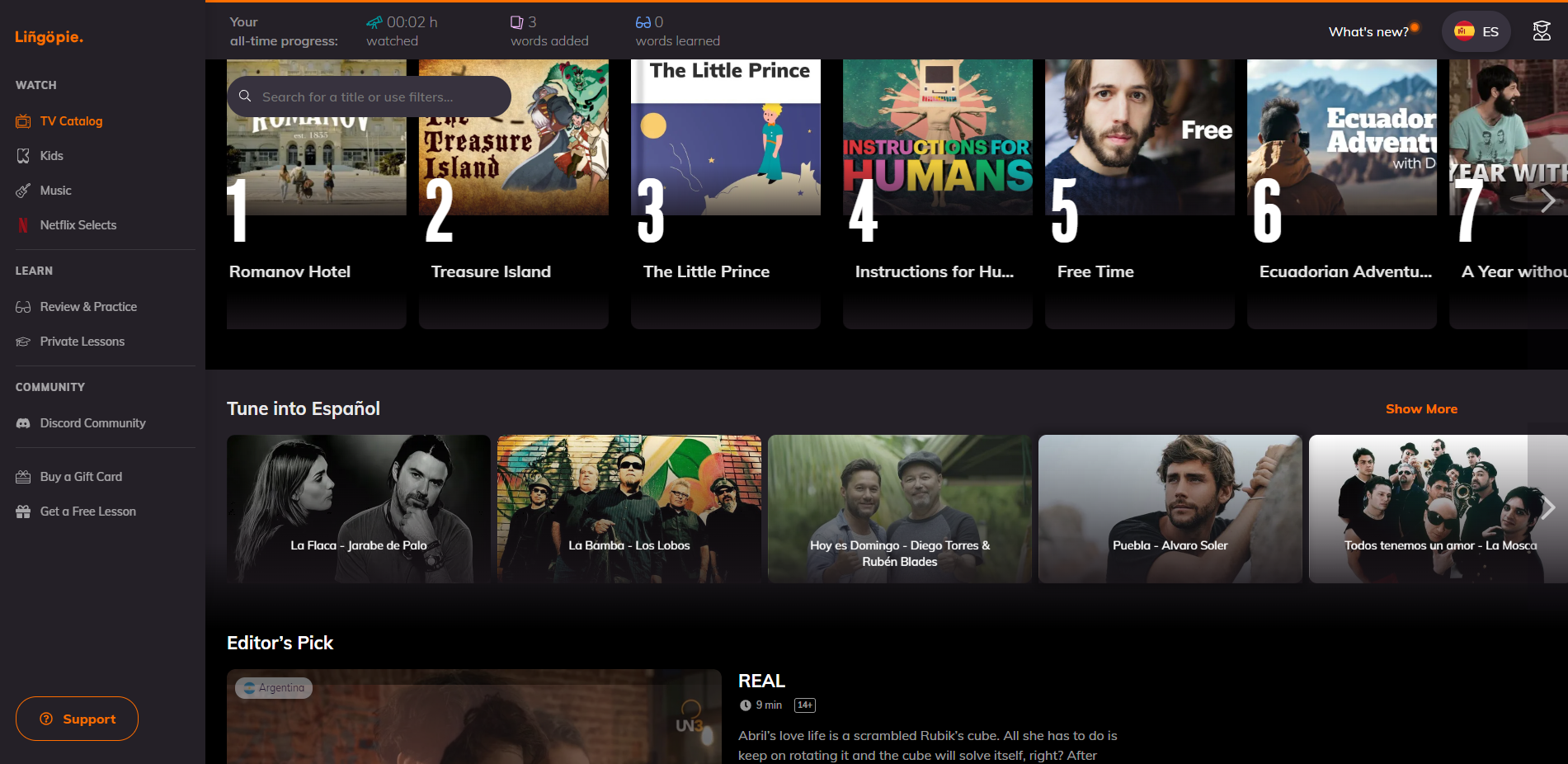Ling App Review
written by: Krystof-Sandor Harfst
Table of Content
Get a discount on Ling App
Short Summary: Advantages & Disadvantages
| Pros | Cons |
|---|---|
| Conversation modules for practical language usage. | Limited grammar explanations provided within the app. |
| Native speaker audio available in both male and female voices. | Lack of translations for individual words hinders comprehension. |
| Curated relevant vocabulary for effective communication. | Occasional technical issues with buggy activities affect user experience. |
| Balanced gamification elements to keep users engaged. | Insufficient variety of informal dialogues, primarily focusing on formal conversation. |
| Review modules for reinforcement and consolidation of learning. | Absence of alphabet modules for absolute beginners may pose challenges. |
| Speaking module encourages users to practice speaking aloud. | Inadequate integration of grammar tips within the app for on-the-spot guidance. |
| Decent price point, making it accessible to a wider audience. | Absence of separate vocabulary lists for each module makes word review less efficient. |
| Utilization of native speaker audio enhances learning experience. | Limited flexibility in adapting to different learning styles and preferences. |
| Enjoyable activities prevent monotony and sustain engagement. | |
| User-friendly interface and visually appealing design for easy navigation. |
What is Ling App?
Ling App, developed by Simya Solutions based in Thailand, is a groundbreaking language-learning platform that has revolutionized the way individuals learn languages since its inception in 2017. Founded by Simon Bacher, a German expatriate residing in Thailand, the app was born out of his personal struggle with the scarcity of high-quality Thai language resources. Determined to bridge this gap, Bacher embarked on creating Ling, a comprehensive language-learning solution that caters to the diverse linguistic needs of learners worldwide.
One of Ling's standout features is its animated and gamified lessons, which immerse users in an engaging and enjoyable learning experience. With native speaker audio enhancing the authenticity of lessons, Ling offers a luxurious environment for language acquisition, making the journey both effective and enjoyable.
What truly sets Ling apart is its vast array of language courses, particularly Asian languages, which are often overlooked by mainstream language-learning platforms. With a commitment to providing resources for less common languages lacking quality self-study materials, Ling empowers learners to explore languages they may have previously deemed inaccessible.
Crafted by language experts and embraced by over one million dedicated learners worldwide, Ling boasts a stellar reputation for its effectiveness and user satisfaction. Its feature-rich interface includes mini-games, native audio, transliterations, and mock conversations, catering to learners of all proficiency levels.
Accessible to users across different platforms, Ling App is available for download on both the Google Play Store and the Apple Store, ensuring convenient access for learners on various devices. Whether you're embarking on a journey to master an Asian language or seeking to expand your linguistic horizons, Ling App is your gateway to a world of language learning possibilities.
What Languages Can You Learn on Ling App
At the moment around 60 languages are available in the Ling App. This are the following languages:
- Afrikaans
- Croatian
- Greek
- Korean
- Persian
- Swahili
- Albanian
- Czech
- Hebrew
- Lao
- Polish
- Swedish
- Arabic (MSA)
- Danish
- Hindi
- Latvian
- Portuguese
- Tagalog
- Armenian
- Dutch
- Hungarian
- Lithuanian
- Punjabi
- Tamil
- Bengali
- Estonian
- Indonesian
- Malayalam
- Romanian
- Telugu
- Bosnian
- English
- Irish
- Malaysian
- Russian
- Thai
- Bulgarian
- Finnish
- Italian
- Marathi
- Serbian
- Turkish
- Burmese
- French
- Japanese
- Mongolian
- Slovak
- Ukrainian
- Cantonese
- Georgian
- Kannada
- Nepali
- Slovenian
- Urdu
- Chinese/Mandarin
- German
- Khmer
- Norwegian
- Spanish
- Vietnamese
How is the Quality of Ling?
The Ling App offers a structured and quality learning experience for language enthusiasts seeking to enhance their skills. Its structure is meticulously organized into five proficiency levels: Beginner, Intermediate, Upper-Intermediate, Advanced, and Expert. Within each level, users encounter around ten modules, each comprising six diverse activities.
These activities serve as comprehensive learning tools, introducing new vocabulary aligned with the thematic content of the module. Additionally, they incorporate speaking sections and exams, providing ample opportunities for practice and assessment. With approximately 200 lessons and 50 units available, learners have access to a rich reservoir of language materials.
One notable aspect of Ling App's quality is its commitment to providing an extensive vocabulary base. With an estimated average of five new words per lesson, users can expect to encounter around 1000 core vocabulary words throughout their learning journey. Moreover, the inclusion of native speakers and a chatbot feature enhances the app's usability, allowing learners to apply their vocabulary in real-world contexts.
However, Ling App is not tailored for absolute beginners, lacking alphabet learning modules. While transliteration is available, prior familiarity with the target language's script is recommended for optimal engagement. Despite this limitation, users benefit from a glitch-free experience, accessible across web and mobile platforms.
In summary, Ling App offers a well-structured and high-quality language learning experience, encompassing a rich array of content and interactive features. Whether you're aiming to bolster your proficiency or delve into a new language, Ling App provides a versatile platform for linguistic exploration and growth.
Neuer Text
Ling App prices: What does Ling App cost?
If you're considering investing in language learning resources, you might come across Ling App, a platform that offers a range of subscription options tailored to different needs and budgets. Let's break down the costs and see if it's worth it for you.
Subscription Options:
1. Monthly Subscription: $14.99 USD per month
- No long-term commitment.
- Ideal if you want to learn a language for traveling or short-term reasons.
- Offers flexibility, but can be more expensive in the long run compared to other options.
2. Annual Subscription: $79.99 USD per year
- Equates to roughly $6.67 per month.
- Includes a 7-day free trial.
- Recommended if you're serious about learning at least one language.
- Cost-effective for those committed to long-term language learning goals.
3. Lifetime Subscription: $149.99 USD
- A one-time payment for unlimited access.
- Ideal for language enthusiasts who are passionate about learning multiple languages.
- Offers the best value for money in the long run for dedicated learners.
Considerations
1. Your Learning Goals: Assess your reasons for learning a language. If it's for casual interest or short-term needs like traveling, the monthly subscription might suffice. However, if you're aiming for proficiency or long-term fluency, consider the annual or lifetime subscription for better value.
2. Budget: Evaluate your budget and how much you're willing to invest in language learning. While the lifetime subscription may seem expensive upfront, it could be more economical over time compared to monthly or annual payments.
3. Commitment Level: Be honest about your commitment to learning. If you're uncertain about your dedication, starting with a monthly subscription allows flexibility. But if you're serious about mastering a language, opting for the annual or lifetime subscription provides motivation and consistency.
4. Free Trial: Take advantage of Ling App's free trial to explore the platform's features and assess its suitability for your learning style and preferences.
What is good about Ling App?
- One of the standout features of Ling App that I truly appreciate is its emphasis on conversation modules. These modules facilitate practical language usage, allowing learners to engage in meaningful dialogues that simulate real-life interactions. This immersive approach is further enriched by the inclusion of native speaker audio, available in both male and female voices. This not only enhances listening comprehension but also provides authentic pronunciation models for learners to emulate.
- Moreover, Ling App excels in curating relevant vocabulary, ensuring that learners acquire words and phrases essential for effective communication. The balanced gamification elements add an element of fun and motivation to the learning process, keeping users engaged without feeling overwhelmed by excessive gamification.
- The inclusion of review modules is another aspect that I find commendable. These modules offer opportunities for reinforcement and consolidation of learned material, aiding in long-term retention and mastery of the language.
- One particularly noteworthy feature is the speaking module, which actively encourages users to practice speaking aloud. This hands-on approach fosters confidence and fluency in speaking, bridging the gap between passive knowledge and active language use.
- Furthermore, Ling App offers a decent price point, making quality language learning accessible to a wider audience. The utilization of native speaker audio enhances the learning experience, while the enjoyable activities prevent monotony and ensure sustained engagement.
- Lastly, the user-friendly interface and visually appealing design of Ling App make it a pleasure to navigate and interact with. Its intuitive layout and seamless functionality contribute to a positive learning environment, allowing users to focus on their language learning journey without unnecessary distractions.
What could be better about Ling App?
- While Ling App offers several valuable features for language learners, there are areas where improvements could enhance the overall user experience.
- One notable drawback is the lack of comprehensive grammar explanations within the app. Clear and concise grammar guidance is essential for understanding the structure of a language, yet Ling App falls short in providing adequate explanations.
- Another limitation is the absence of translations for individual words. While immersion is beneficial for language acquisition, having translations available can aid learners in understanding vocabulary in context.
- Additionally, Ling App experiences issues with buggy activities, detracting from the learning experience. Addressing these technical glitches would improve the app's usability and reliability.
- Furthermore, there is a need for more diverse and informal dialogues. Presently, the conversations within Ling App primarily focus on formal settings, limiting exposure to everyday language use.
- For absolute beginners, the absence of alphabet modules poses a significant obstacle. Introducing alphabet lessons would provide a solid foundation for learners starting from scratch.
- Integrating grammar tips within the app would also be advantageous. Providing on-the-spot grammar guidance during activities can help learners understand and apply grammatical concepts more effectively.
- Lastly, implementing a separate vocabulary list for each module would streamline the learning process. This feature would allow users to quickly reference and review words introduced in specific lessons, facilitating retention and reinforcement.
Get a discount on Ling App
Share this article!






